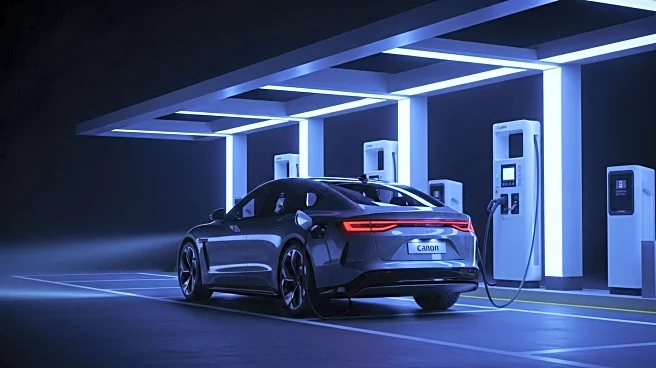What is the story about?
What's Happening?
Kia America experienced a modest increase in electric vehicle (EV) sales in September, despite the expiration of the U.S. EV tax credit. The company's EV6 model saw a 31.3% increase in sales, rising from 1,612 units to 2,116 units, while the EV9 model grew by 47.6%, from 2,096 units to 3,094 units. However, these figures did not meet expectations for a significant surge in sales following the tax credit's expiration. Over the first nine months of 2025, both models saw a decline in sales compared to the same period in 2024, with the EV6 dropping from 15,985 to 11,077 units and the EV9 from 15,970 to 12,448 units.
Why It's Important?
The modest sales figures for Kia's EVs highlight the challenges automakers face in maintaining momentum in the EV market without the support of tax incentives. The expiration of the EV tax credit could have been an opportunity for a sales boost, but the results suggest that consumer demand may not be as robust as anticipated. This situation underscores the importance of incentives in driving EV adoption and could influence future policy decisions regarding support for the EV industry. Automakers like Kia may need to reassess their strategies to sustain growth in a competitive market without relying on government incentives.
What's Next?
Kia is preparing to launch the new 2027 Telluride SUV, which is expected to feature updated styling, enhanced technology, and improved powertrains. This launch could help Kia regain momentum in the market. Additionally, the company may need to explore new marketing strategies or product innovations to attract consumers in the absence of tax incentives. The broader EV market will likely monitor how Kia and other automakers adapt to these changes, potentially influencing future industry trends and consumer preferences.

















